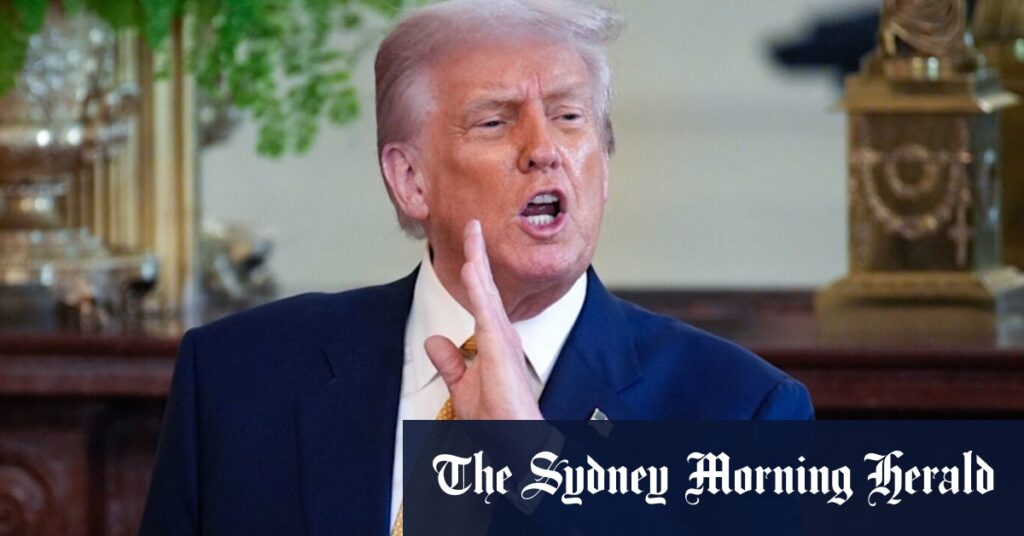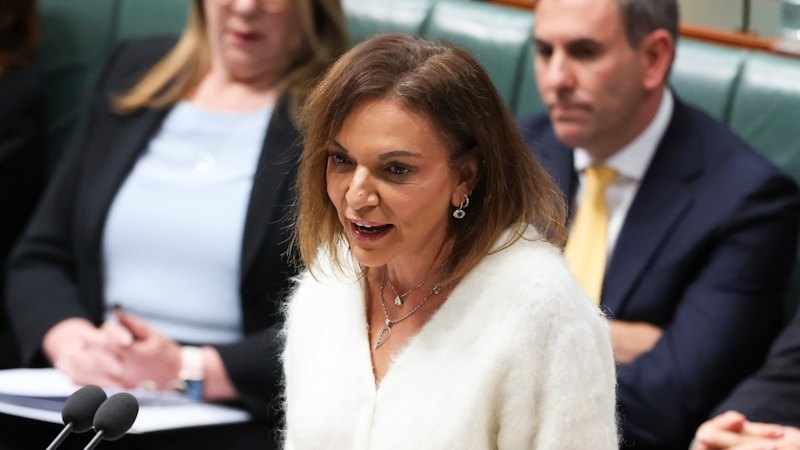
Trade Minister Don Farrell has expressed confidence that the Australian government could persuade former US President Donald Trump to eliminate tariffs on Australian goods. This comes as Trump celebrates a recent decision allowing North American beef into Australia, which he plans to leverage in broader trade negotiations.
The Trump administration has touted the agreement, announced on Thursday, as a significant victory. However, analysts have suggested that the move is unlikely to substantially increase US beef exports due to Australia’s lower beef prices.
Trump’s Strategic Move in Global Trade
US President Donald Trump has been vocal about using Australia’s decision as a strategic tool in international trade discussions. In a post on Truth Social, Trump declared,
“The other Countries that refuse our magnificent Beef are ON NOTICE. All of our Nation’s Ranchers, who are some of the hardest working and most wonderful people, are smiling today, which means I am smiling too. Let’s keep the Hot Streak going. IT’S THE GOLDEN AGE OF AMERICA!”
Since his return to the White House in January, Trump has been attempting to renegotiate trade deals with various countries, claiming they have historically exploited the United States. This approach has been met with skepticism from many economists who dispute Trump’s characterization of these trade relationships.
Australia’s Position and Potential Impact
Australia’s federal government, led by Trade Minister Don Farrell, remains optimistic about negotiating a reprieve from US tariffs. Farrell believes that Australia’s longstanding alliance with the United States and its strategic importance in the Asia-Pacific region could be leveraged to achieve this goal.
The announcement comes at a time when global trade dynamics are shifting, with countries reassessing their economic alliances in the wake of the COVID-19 pandemic and geopolitical tensions. Australia’s efforts to secure tariff relief are part of a broader strategy to strengthen its economic resilience.
Expert Opinions and Economic Implications
Economists have weighed in on the potential implications of the US-Australia beef trade agreement. Dr. Jane Smith, a trade policy expert at the University of Sydney, noted that while the deal might not significantly boost US beef exports, it could set a precedent for future trade negotiations.
“The agreement could serve as a bargaining chip for the US in other trade talks, potentially giving them leverage in negotiations with countries that have been resistant to American agricultural products,” Smith explained.
Meanwhile, Australian beef producers are closely monitoring the situation, as increased competition from North American imports could impact local markets. However, some industry insiders believe that Australia’s high-quality beef will continue to hold its own in the domestic market.
Looking Ahead: The Future of US-Australia Trade Relations
The move represents a critical juncture in US-Australia trade relations. As both countries navigate the complexities of international trade, the outcome of these negotiations could have far-reaching consequences for their economic ties.
According to sources familiar with the discussions, Australia is preparing to engage in high-level talks with US trade officials in the coming months. These discussions will likely focus on securing tariff relief and exploring new areas of economic cooperation.
As the situation unfolds, stakeholders in both countries will be watching closely to see how these developments impact the broader trade landscape. The potential for a more favorable trade environment could benefit industries on both sides of the Pacific, fostering stronger economic ties between the two allies.






